Tag #code generation
228 papers:
- IFM-2019-VuHKL #multi
- A Multi-target Code Generator for High-Level B (FV, DH, PK, ML), pp. 456–473.
 SEFM-2019-WijsW #composition #concurrent #multi #thread #verification
SEFM-2019-WijsW #composition #concurrent #multi #thread #verification- Modular Indirect Push-Button Formal Verification of Multi-threaded Code Generators (AW, MW), pp. 410–429.
 CGO-2019-GomesB #automation #formal method #modelling
CGO-2019-GomesB #automation #formal method #modelling- Code Generation from Formal Models for Automatic RTOS Portability (RMG, MB), pp. 271–272.
 CGO-2019-KimSTKPPRS
CGO-2019-KimSTKPPRS - A Code Generator for High-Performance Tensor Contractions on GPUs (JK, ASR, VT, SK, AP, LNP, AR, PS), pp. 85–95.
 ICSME-2018-Volanschi #editing #named
ICSME-2018-Volanschi #editing #named- Stereo: Editing Clones Refactored as Code Generators (NV), pp. 595–604.
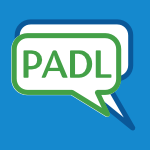 PADL-2018-Crary #source code #using
PADL-2018-Crary #source code #using- Hygienic Source-Code Generation Using Functors - (Extended Abstract) (KC), pp. 53–60.
 CGO-2018-HagedornSSGD #performance
CGO-2018-HagedornSSGD #performance- High performance stencil code generation with lift (BH, LS, MS, SG, CD), pp. 100–112.
 MoDELS-2017-EgeaD #automation #named #ocl #sql
MoDELS-2017-EgeaD #automation #named #ocl #sql- SQL-PL4OCL: An Automatic Code Generator from OCL to SQL Procedural Language (ME, CD), p. 54.
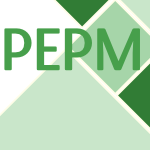 PEPM-2017-SuwaT0I #higher-order #model checking #verification
PEPM-2017-SuwaT0I #higher-order #model checking #verification- Verification of code generators via higher-order model checking (TS, TT, NK0, AI), pp. 59–70.
 PPDP-2017-WinantCD #type safety
PPDP-2017-WinantCD #type safety- Expressive and strongly type-safe code generation (TW, JC, DD), pp. 199–210.
 SLE-2017-LuhunuS #comparison #performance #tool support
SLE-2017-LuhunuS #comparison #performance #tool support- Comparison of the expressiveness and performance of template-based code generation tools (LL, ES), pp. 206–216.
 CGO-2017-SteuwerRD #functional #gpu #information retrieval #named
CGO-2017-SteuwerRD #functional #gpu #information retrieval #named- Lift: a functional data-parallel IR for high-performance GPU code generation (MS, TR, CD), pp. 74–85.
 MoDELS-2016-DasGJBHD #animation #development #embedded #modelling #monitoring #realtime #runtime
MoDELS-2016-DasGJBHD #animation #development #embedded #modelling #monitoring #realtime #runtime- Supporting the model-driven development of real-time embedded systems with run-time monitoring and animation via highly customizable code generation (ND, SG, LJ, MB, NH, JD), pp. 36–43.
 MoDELS-2016-HarrandFMH #framework #named
MoDELS-2016-HarrandFMH #framework #named- ThingML: a language and code generation framework for heterogeneous targets (NH, FF, BM, KEH), pp. 125–135.
 FSE-2016-HasabnisS #execution #semantics #symbolic computation
FSE-2016-HasabnisS #execution #semantics #symbolic computation- Extracting instruction semantics via symbolic execution of code generators (NH, RS), pp. 301–313.
- ICSE-2016-TerragniC #concurrent
- Coverage-driven test code generation for concurrent classes (VT, SCC), pp. 1121–1132.
 GPCE-2016-AdamKS #automation #case study #embedded #experience
GPCE-2016-AdamKS #automation #case study #embedded #experience- Automatic code generation in practice: experiences with embedded robot controllers (SA, MK, UPS), pp. 104–108.
 GPCE-2016-BoussaaBBS #automation #non-functional #product line #testing
GPCE-2016-BoussaaBBS #automation #non-functional #product line #testing- Automatic non-functional testing of code generators families (MB, OB, BB, GS), pp. 202–212.
 Haskell-2015-McDonellCGN #runtime #type safety
Haskell-2015-McDonellCGN #runtime #type safety- Type-safe runtime code generation: accelerate to LLVM (TLM, MMTC, VG, RRN), pp. 201–212.
 GPCE-2015-RingertRW #behaviour
GPCE-2015-RingertRW #behaviour- Composing code generators for C&C ADLs with Application-specific behavior languages (JOR, BR, AW), pp. 113–116.
 CASE-2015-GleesonBBCL #automation #optimisation
CASE-2015-GleesonBBCL #automation #optimisation- Optimizing robot trajectories for automatic robot code generation (DG, SB, RB, JSC, BL), pp. 495–500.
 CC-2015-BourkeCPPP #hybrid
CC-2015-BourkeCPPP #hybrid- A Synchronous-Based Code Generator for Explicit Hybrid Systems Languages (TB, JLC, BP, CP, MP), pp. 69–88.
 CC-2015-NgCY #protocol
CC-2015-NgCY #protocol- Protocols by Default — Safe MPI Code Generation Based on Session Types (NN, JGdFC, NY), pp. 212–232.
 CGO-2015-HasabnisQS #architecture #correctness #specification
CGO-2015-HasabnisQS #architecture #correctness #specification- Checking correctness of code generator architecture specifications (NH, RQ, RS), pp. 167–178.
 DATE-2015-FuWH
DATE-2015-FuWH - Improving SIMD code generation in QEMU (SYF, JJW, WCH), pp. 1233–1236.
 PDP-2015-EvrardL #automation #concurrent #distributed #formal method #modelling #process
PDP-2015-EvrardL #automation #concurrent #distributed #formal method #modelling #process- Automatic Distributed Code Generation from Formal Models of Asynchronous Concurrent Processes (HE, FL), pp. 459–466.
 PPoPP-2015-RavishankarDEPRRS #distributed #memory management
PPoPP-2015-RavishankarDEPRRS #distributed #memory management- Distributed memory code generation for mixed Irregular/Regular computations (MR, RD, VE, LNP, JR, AR, PS), pp. 65–75.
 TAP-2015-MoreiraHDMNM #case study #testing #tool support #using #verification
TAP-2015-MoreiraHDMNM #case study #testing #tool support #using #verification- Verifying Code Generation Tools for the B-Method Using Tests: A Case Study (AMM, CH, DD, ECBdM, JBSN, VdMJ), pp. 76–91.
 ECSA-2014-CavalcanteOB #architecture #implementation
ECSA-2014-CavalcanteOB #architecture #implementation- Architecture-Based Code Generation: From π-ADL Architecture Descriptions to Implementations in the Go Language (EC, FO, TVB), pp. 130–145.
 VLDB-2014-NagelBV #performance #query
VLDB-2014-NagelBV #performance #query- Code Generation for Efficient Query Processing in Managed Runtimes (FN, GMB, SDV), pp. 1095–1106.
 IFM-2014-FurstHBDSM
IFM-2014-FurstHBDSM - Code Generation for Event-B (AF, TSH, DAB, KD, NS, KM), pp. 323–338.
 SEFM-2014-Leroy #proving #tool support #verification
SEFM-2014-Leroy #proving #tool support #verification- Formal Proofs of Code Generation and Verification Tools (XL), pp. 1–4.
 ILC-2014-Nunes-Harwitt14a #approach #evaluation #semantics
ILC-2014-Nunes-Harwitt14a #approach #evaluation #semantics- Eager Evaluation Isn’t Eager Enough A Transformation Based Approach to Semantics-Directed Code Generation (ANH), p. 79.
 AMT-2014-ZhangBBEHKW #concurrent #java #state machine #towards
AMT-2014-ZhangBBEHKW #concurrent #java #state machine #towards- Towards Verified Java Code Generation from Concurrent State Machines (DZ, DB, MvdB, LE, CH, RK, AW), pp. 64–69.
 PEPM-2014-KameyamaKS #combinator
PEPM-2014-KameyamaKS #combinator- Combinators for impure yet hygienic code generation (YK, OK, CcS), pp. 3–14.
 SAC-2014-CaniGSST #automation #integration #towards
SAC-2014-CaniGSST #automation #integration #towards- Towards automated malware creation: code generation and code integration (AC, MG, ES, GS, APT), pp. 157–160.
 CC-2014-CharlesCLEG
CC-2014-CharlesCLEG - deGoal a Tool to Embed Dynamic Code Generators into Applications (HPC, DC, VL, FAE, RG), pp. 107–112.
 CC-2014-Dinechin #using
CC-2014-Dinechin #using- Using the SSA-Form in a Code Generator (BDdD), pp. 1–17.
 CGO-2014-JuegaGTC #adaptation #automation #parametricity
CGO-2014-JuegaGTC #adaptation #automation #parametricity- Adaptive Mapping and Parameter Selection Scheme to Improve Automatic Code Generation for GPUs (JCJ, JIG, CT, FC), p. 251.
 CGO-2014-VenkatSHS
CGO-2014-VenkatSHS - Non-affine Extensions to Polyhedral Code Generation (AV, MS, MWH, MMS), p. 185.
 DAC-2014-RehmanKSSH #adaptation #dependence #named #process #reliability
DAC-2014-RehmanKSSH #adaptation #dependence #named #process #reliability- dTune: Leveraging Reliable Code Generation for Adaptive Dependability Tuning under Process Variation and Aging-Induced Effects (SR, FK, DS, MS, JH), p. 6.
 DATE-2014-MembarthRHT #android #architecture #embedded
DATE-2014-MembarthRHT #android #architecture #embedded- Code generation for embedded heterogeneous architectures on android (RM, OR, FH, JT), pp. 1–6.
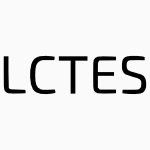 LCTES-2014-SpinkWFT #performance
LCTES-2014-SpinkWFT #performance- Efficient code generation in a region-based dynamic binary translator (TS, HW, BF, NPT), pp. 3–12.
 CAiSE-2013-PapottiPSCP #analysis #modelling
CAiSE-2013-PapottiPSCP #analysis #modelling- A Quantitative Analysis of Model-Driven Code Generation through Software Experimentation (PEP, AFdP, WLdS, CEC, LFP), pp. 321–337.
 PLDI-2013-KongVSFPS
PLDI-2013-KongVSFPS - When polyhedral transformations meet SIMD code generation (MK, RV, KS, FF, LNP, PS), pp. 127–138.
 ICSE-2013-Guana #maintenance
ICSE-2013-Guana #maintenance- Supporting maintenance tasks on transformational code generation environments (VG), pp. 1369–1372.
 SAC-2013-CiraciV #points-to
SAC-2013-CiraciV #points-to- Exploiting points-to maps for de-/serialization code generation (SC, OV), pp. 1712–1719.
 CGO-2013-KruijfS #analysis #evaluation #implementation
CGO-2013-KruijfS #analysis #evaluation #implementation- Idempotent code generation: Implementation, analysis, and evaluation (MdK, KS), p. 12.
 FASE-2013-SakamotoTHWF #integration #named #testing #web
FASE-2013-SakamotoTHWF #integration #named #testing #web- POGen: A Test Code Generator Based on Template Variable Coverage in Gray-Box Integration Testing for Web Applications (KS, KT, DH, HW, YF), pp. 343–358.
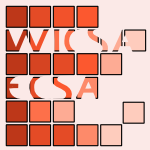 WICSA-ECSA-2012-EdwardsBM #analysis #automation #modelling
WICSA-ECSA-2012-EdwardsBM #analysis #automation #modelling- Automated Analysis and Code Generation for Domain-Specific Models (GE, YB, NM), pp. 161–170.
 CAiSE-2012-PastorE #modelling #requirements
CAiSE-2012-PastorE #modelling #requirements- Full Model-Driven Practice: From Requirements to Code Generation (OP, SE), pp. 701–702.
 ICML-2012-McAfeeO #network #static analysis
ICML-2012-McAfeeO #network #static analysis- Utilizing Static Analysis and Code Generation to Accelerate Neural Networks (LCM, KO), p. 192.
 ECMFA-2012-SmolikV
ECMFA-2012-SmolikV - Code Generation Nirvana (PCS, PV), pp. 319–327.
 PPoPP-2012-KimH #kernel #performance
PPoPP-2012-KimH #kernel #performance- Efficient SIMD code generation for irregular kernels (SK, HH), pp. 55–64.
 ECMFA-2011-GessenharterR #approach #development #diagrams #modelling #process #towards #uml
ECMFA-2011-GessenharterR #approach #development #diagrams #modelling #process #towards #uml- Code Generation for UML 2 Activity Diagrams — Towards a Comprehensive Model-Driven Development Approach (DG, MR), pp. 205–220.
 MoDELS-2011-StenzelMR #qvt #verification
MoDELS-2011-StenzelMR #qvt #verification- Formal Verification of QVT Transformations for Code Generation (KS, NM, WR), pp. 533–547.
 GPCE-2011-Shubert #development #flexibility #modelling
GPCE-2011-Shubert #development #flexibility #modelling- Application of model based development to flexible code generation (GJS), pp. 95–96.
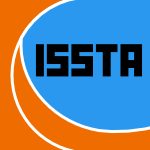 ISSTA-2011-GligoricMK #named #performance
ISSTA-2011-GligoricMK #named #performance- CoDeSe: fast deserialization via code generation (MG, DM, SK), pp. 298–308.
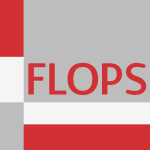 FLOPS-2010-HaftmannN #higher-order #term rewriting
FLOPS-2010-HaftmannN #higher-order #term rewriting- Code Generation via Higher-Order Rewrite Systems (FH, TN), pp. 103–117.
 SEKE-2010-BaratK #approach #configuration management #development #modelling
SEKE-2010-BaratK #approach #configuration management #development #modelling- Developing configurable extensible code generators for model-driven development approach (SB, VK), pp. 577–582.
 MoDELS-v1-2010-RahimW #consistency #semantics #state machine #verification
MoDELS-v1-2010-RahimW #consistency #semantics #state machine #verification- Verifying Semantic Conformance of State Machine-to-Java Code Generators (LAR, JW), pp. 166–180.
 PEPM-2010-RudolphT #bytecode #named #runtime #type safety
PEPM-2010-RudolphT #bytecode #named #runtime #type safety- Mnemonics: type-safe bytecode generation at run time (JR, PT), pp. 15–24.
 ASE-2010-MontrieuxJHYST #tool support
ASE-2010-MontrieuxJHYST #tool support- Tool support for code generation from a UMLsec property (LM, JJ, CBH, YY, PYS, HT), pp. 357–358.
 ASE-2010-RajeevSSR #named #testing
ASE-2010-RajeevSSR #named #testing- CoGenTe: a tool for code generator testing (ACR, PS, KCS, SR), pp. 349–350.
 GPCE-2010-RompfO #approach #composition #domain-specific language #lightweight #runtime #staging
GPCE-2010-RompfO #approach #composition #domain-specific language #lightweight #runtime #staging- Lightweight modular staging: a pragmatic approach to runtime code generation and compiled DSLs (TR, MO), pp. 127–136.
 CC-2010-BaskaranRS #automation #source code
CC-2010-BaskaranRS #automation #source code- Automatic C-to-CUDA Code Generation for Affine Programs (MMB, JR, PS), pp. 244–263.
 CGO-2010-KochBF
CGO-2010-KochBF - Integrated instruction selection and register allocation for compact code generation exploiting freeform mixing of 16- and 32-bit instructions (TJKEvK, IB, BF), pp. 180–189.
 DATE-2010-CharfiMGTB #modelling #optimisation #towards
DATE-2010-CharfiMGTB #modelling #optimisation #towards- Toward optimized code generation through model-based optimization (AC, CM, SG, FT, PB), pp. 1313–1316.
 DATE-2010-CollinsVC #manycore #parallel #recursion
DATE-2010-CollinsVC #manycore #parallel #recursion- Recursion-driven parallel code generation for multi-core platforms (RLC, BV, LPC), pp. 190–195.
 DATE-2010-ZhangDYMZKCPS #compilation #evaluation
DATE-2010-ZhangDYMZKCPS #compilation #evaluation- A special-purpose compiler for look-up table and code generation for function evaluation (YZ, LD, PY, SPM, HZ, MTK, CC, NP, XS), pp. 1130–1135.
 WICSA-ECSA-2009-BontaB #algebra #architecture #java #named #process
WICSA-ECSA-2009-BontaB #algebra #architecture #java #named #process- PADL2Java: A Java code generator for process algebraic architectural descriptions (EB, MB), pp. 161–170.
 CIKM-2009-GedikAW #approach #data type #distributed #optimisation
CIKM-2009-GedikAW #approach #data type #distributed #optimisation- A code generation approach to optimizing high-performance distributed data stream processing (BG, HA, KLW), pp. 847–856.
 SEKE-2009-HauboldBG #metamodelling #object-oriented #uml
SEKE-2009-HauboldBG #metamodelling #object-oriented #uml- A Pragmatic UML-based Meta Model for Object-oriented Code Generation (TH, GB, WG), pp. 733–738.
 AdaEurope-2009-LasnierZPH #analysis #automation #modelling
AdaEurope-2009-LasnierZPH #analysis #automation #modelling- Ocarina : An Environment for AADL Models Analysis and Automatic Code Generation for High Integrity Applications (GL, BZ, LP, JH), pp. 237–250.
 POPL-2009-LublinermanST #composition #diagrams
POPL-2009-LublinermanST #composition #diagrams- Modular code generation from synchronous block diagrams: modularity vs. code size (RL, CS, ST), pp. 78–89.
 GTTSE-2009-JorgesSM #tutorial
GTTSE-2009-JorgesSM #tutorial- Building Code Generators with Genesys: A Tutorial Introduction (SJ, BS, TMS), pp. 364–385.
 DATE-2009-VidalLGSD #approach #co-evolution #design #embedded #modelling #uml
DATE-2009-VidalLGSD #approach #co-evolution #design #embedded #modelling #uml- A co-design approach for embedded system modeling and code generation with UML and MARTE (JV, FdL, GG, PS, JPD), pp. 226–231.
 LCTES-2009-HeinzW #towards
LCTES-2009-HeinzW #towards- Towards device emulation code generation (TH, RW), pp. 109–118.
 SEFM-2008-SampathRRS #behaviour #testing
SEFM-2008-SampathRRS #behaviour #testing- Behaviour Directed Testing of Auto-code Generators (PS, ACR, SR, KCS), pp. 191–200.
 ICMT-2008-HemelKV #model transformation
ICMT-2008-HemelKV #model transformation- Code Generation by Model Transformation (ZH, LCLK, EV), pp. 183–198.
 MoDELS-2008-Gessenharter #java #semantics #uml
MoDELS-2008-Gessenharter #java #semantics #uml- Mapping the UML2 Semantics of Associations to a Java Code Generation Model (DG), pp. 813–827.
 MoDELS-2008-ProutADS #configuration management #semantics
MoDELS-2008-ProutADS #configuration management #semantics- Semantically Configurable Code Generation (AP, JMA, NAD, PS), pp. 705–720.
 SPLC-2008-WeissLSDS
SPLC-2008-WeissLSDS - Decision-Model-Based Code Generation for SPLE (DMW, JJL, JHS, TTDT, HS), pp. 129–138.
 MoDELS-2008-Gessenharter #java #semantics #uml
MoDELS-2008-Gessenharter #java #semantics #uml- Mapping the UML2 Semantics of Associations to a Java Code Generation Model (DG), pp. 813–827.
 MoDELS-2008-ProutADS #configuration management #semantics
MoDELS-2008-ProutADS #configuration management #semantics- Semantically Configurable Code Generation (AP, JMA, NAD, PS), pp. 705–720.
 ASE-2008-LiHG #interface #modelling #multi #named #process
ASE-2008-LiHG #interface #modelling #multi #named #process- MaramaEML: An Integrated Multi-View Business Process Modelling Environment with Tree-Overlays, Zoomable Interfaces and Code Generation (RLL, JGH, JCG), pp. 477–478.
 ASE-2008-TurnerPKC #approach #automation #process #using #web
ASE-2008-TurnerPKC #approach #automation #process #using #web- An Automated Test Code Generation Method for Web Applications using Activity Oriented Approach (DAT, MP, JK, JC), pp. 411–414.
 GPCE-2008-KulkarniR #abstraction #component #generative #modelling #reuse
GPCE-2008-KulkarniR #abstraction #component #generative #modelling #reuse- An abstraction for reusable MDD components: model-based generation of model-based code generators (VK, SR), pp. 181–184.
 GPCE-2008-RosenmullerSSA #composition #product line
GPCE-2008-RosenmullerSSA #composition #product line- Code generation to support static and dynamic composition of software product lines (MR, NS, GS, SA), pp. 3–12.
 DATE-2008-BrisolaraORLCW #uml #using
DATE-2008-BrisolaraORLCW #uml #using- Using UML as Front-end for Heterogeneous Software Code Generation Strategies (LBdB, MFdSO, RMR, LCL, LC, FRW), pp. 504–509.
 DATE-2008-LublinermanT #composition #diagrams #reuse #usability
DATE-2008-LublinermanT #composition #diagrams #reuse #usability- Modularity vs. Reusability: Code Generation from Synchronous Block Diagrams (RL, ST), pp. 1504–1509.
 LCTES-2008-BiernackiCHP #composition #data flow
LCTES-2008-BiernackiCHP #composition #data flow- Clock-directed modular code generation for synchronous data-flow languages (DB, JLC, GH, MP), pp. 121–130.
 SIGMOD-2007-GrustMRST #compilation #sql #xquery
SIGMOD-2007-GrustMRST #compilation #sql #xquery- A SQL: 1999 code generator for the pathfinder xquery compiler (TG, MM, JR, SS, JT), pp. 1162–1164.
 Haskell-2007-GrabmullerK #haskell #named #runtime
Haskell-2007-GrabmullerK #haskell #named #runtime- Harpy: run-time code generation in haskell (MG, DK), p. 94.
 SEKE-2007-XuXW #automation #protocol #state machine #uml
SEKE-2007-XuXW #automation #protocol #state machine #uml- Automated Test Code Generation from UML Protocol State Machines (DX, WX, WEW), pp. 99–104.
 AdaEurope-2007-AlonsoVSAL #ada #approach #automation #modelling #using
AdaEurope-2007-AlonsoVSAL #ada #approach #automation #modelling #using- Automatic Ada Code Generation Using a Model-Driven Engineering Approach (DA, CVC, PS, BÁ, FL), pp. 168–179.
 CGO-2007-WangCWSA #memory management #optimisation #transaction
CGO-2007-WangCWSA #memory management #optimisation #transaction- Code Generation and Optimization for Transactional Memory Constructs in an Unmanaged Language (CW, WYC, YW, BS, ARAT), pp. 34–48.
 COCV-2007-BlechP
COCV-2007-BlechP - A Certifying Code Generation Phase (JOB, APH), pp. 65–82.
 SPLC-2006-Tolvanen #modelling #product line
SPLC-2006-Tolvanen #modelling #product line- Domain-Specific Modeling and Code Generation for Product Lines (JPT), p. 229.
 CC-2006-VasilacheBC
CC-2006-VasilacheBC - Polyhedral Code Generation in the Real World (NV, CB, AC), pp. 185–201.
 LCTES-2006-EdwardsT #modelling #performance
LCTES-2006-EdwardsT #modelling #performance- Efficient code generation from SHIM models (SAE, OT), pp. 125–134.
 SCAM-2005-Singer #concept #debugging
SCAM-2005-Singer #concept #debugging- Concept Assignment as a Debugging Technique for Code Generators (JS), pp. 75–86.
 SEFM-2005-LeinenbachPP #compilation #implementation #towards #verification
SEFM-2005-LeinenbachPP #compilation #implementation #towards #verification- Towards the Formal Verification of a C0 Compiler: Code Generation and Implementation Correctnes (DL, WJP, EP), pp. 2–12.
 MoDELS-2005-ChauvelJ #modelling #semantics #uml
MoDELS-2005-ChauvelJ #modelling #semantics #uml- Code Generation from UML Models with Semantic Variation Points (FC, JMJ), pp. 54–68.
 MoDELS-2005-ChauvelJ #modelling #semantics #uml
MoDELS-2005-ChauvelJ #modelling #semantics #uml- Code Generation from UML Models with Semantic Variation Points (FC, JMJ), pp. 54–68.
 PADL-2005-WangGL #continuation #logic #semantics #towards
PADL-2005-WangGL #continuation #logic #semantics #towards- Towards Provably Correct Code Generation via Horn Logical Continuation Semantics (QW, GG, ML), pp. 98–112.
 ASE-2005-GeW #architecture #configuration management #framework #modelling #named
ASE-2005-GeW #architecture #configuration management #framework #modelling #named- Bamboo: an architecture modeling and code generation framework for configuration management systems (GG, EJWJ), pp. 427–428.
 ASE-2005-SwintPJYKWCSM #composition #flexibility #named
ASE-2005-SwintPJYKWCSM #composition #flexibility #named- Clearwater: extensible, flexible, modular code generation (GSS, CP, GJ, WY, YK, QW, CC, AS, KM), pp. 144–153.
 GPCE-2005-MossM #domain-specific language #performance
GPCE-2005-MossM #domain-specific language #performance- Efficient Code Generation for a Domain Specific Language (AM, HLM), pp. 47–62.
 CGO-2005-ChenK #optimisation
CGO-2005-ChenK #optimisation- Optimizing Address Code Generation for Array-Intensive DSP Applications (GC, MTK), pp. 141–152.
 CGO-2005-WuEW #performance #runtime
CGO-2005-WuEW #performance #runtime- Efficient SIMD Code Generation for Runtime Alignment and Length Conversion (PW, AEE, AW), pp. 153–164.
 COCV-J-2005-BlechGLM #comparison #correctness #higher-order #optimisation #proving
COCV-J-2005-BlechGLM #comparison #correctness #higher-order #optimisation #proving- Optimizing Code Generation from SSA Form: A Comparison Between Two Formal Correctness Proofs in Isabelle/HOL (JOB, SG, JL, SM), pp. 33–51.
 LCTES-2005-HenzingerKM #composition #distributed
LCTES-2005-HenzingerKM #composition #distributed- Composable code generation for distributed giotto (TAH, CMK, SM), pp. 21–30.
 SCAM-2004-NaumannULF #control flow
SCAM-2004-NaumannULF #control flow- Control Flow Reversal for Adjoint Code Generation (UN, JU, AL, MWF), pp. 55–64.
 ICGT-2004-BaldanKS #generative #graph transformation #testing
ICGT-2004-BaldanKS #generative #graph transformation #testing- Generating Test Cases for Code Generators by Unfolding Graph Transformation Systems (PB, BK, IS), pp. 194–209.
 EDOC-2004-ZhaoBBROA #automation #component #distributed #integration
EDOC-2004-ZhaoBBROA #automation #component #distributed #integration- Automated Glue/Wrapper Code Generation in Integration of Distributed and Heterogeneous Software Components (WZ, BRB, CCB, RRR, AMO, MA), pp. 275–285.
 SAC-2004-Engelen #embedded #web #web service #xml
SAC-2004-Engelen #embedded #web #web service #xml- Code generation techniques for developing light-weight XML Web services for embedded devices (RvE), pp. 854–861.
 SAC-2004-GoumasDAK #automation #parallel
SAC-2004-GoumasDAK #automation #parallel- Automatic parallel code generation for tiled nested loops (GIG, ND, MA, NK), pp. 1412–1419.
 SAC-2004-MarkWC #automation #modelling #using
SAC-2004-MarkWC #automation #modelling #using- Using semi-lagrangian formulations with automatic code generation for environmental modeling (PvdM, LW, GC), pp. 229–234.
 CGO-2004-RongDGG #multi #pipes and filters
CGO-2004-RongDGG #multi #pipes and filters- Code Generation for Single-Dimension Software Pipelining of Multi-Dimensional Loops (HR, AD, RG, GRG), pp. 175–188.
 DATE-v2-2004-LorenzM #algorithm #search-based #using
DATE-v2-2004-LorenzM #algorithm #search-based #using- Phase Coupled Code Generation for DSPs Using a Genetic Algorithm (ML, PM), pp. 1270–1275.
 ICEIS-v3-2003-AleksyG #distributed
ICEIS-v3-2003-AleksyG #distributed- Code Generation for Distributed Systems (MA, RG), pp. 313–318.
 ASE-2003-SturmerC #design #testing #tool support
ASE-2003-SturmerC #design #testing #tool support- Test Suite Design for Code Generation Tools (IS, MC), pp. 286–290.
 SAC-2003-MarkWC #automation
SAC-2003-MarkWC #automation- Automatic Code Generation for a Convection Scheme (PvdM, LW, GC), pp. 1003–1008.
 SAC-2003-ShinjoKP #empirical #performance
SAC-2003-ShinjoKP #empirical #performance- Efficient Mediators through Dynamic Code Generation: a Method and an Experiment (YS, TK, CP), pp. 1147–1154.
 GPCE-2003-RutherfordW #modelling
GPCE-2003-RutherfordW #modelling- A Case for Test-Code Generation in Model-Driven Systems (MJR, ALW), pp. 377–396.
 CGO-2003-KaminCJ #java #named #runtime
CGO-2003-KaminCJ #java #named #runtime- Jumbo: Run-Time Code Generation for Java and Its Applications (SK, LC, AJ), pp. 48–58.
 DATE-2003-BesanaB #automation #case study #design #framework #hardware #platform
DATE-2003-BesanaB #automation #case study #design #framework #hardware #platform- Application Mapping to a Hardware Platform through Automated Code Generation Targeting a RTOS: A Design Case Study (MB, MB), pp. 20041–20044.
 EDOC-2002-OldevikSEB #framework #model transformation
EDOC-2002-OldevikSEB #framework #model transformation- Framework for Model Transformation and Code Generation (JO, AS, BE, AJB), pp. 181–189.
 ICEIS-2002-PelechanoACP #automation #concept #object-oriented
ICEIS-2002-PelechanoACP #automation #concept #object-oriented- Automating the Code Generation of Role Classes in OO Conceptual Schemas (VP, MA, EC, OP), pp. 658–666.
 SAC-2002-GoumasAK #architecture #automation #parallel
SAC-2002-GoumasAK #architecture #automation #parallel- Automatic code generation for executing tiled nested loops onto parallel architectures (GIG, MA, NK), pp. 876–881.
 DAC-2002-ChoiK #scheduling
DAC-2002-ChoiK #scheduling- Address assignment combined with scheduling in DSP code generation (YC, TK), pp. 225–230.
 LCTES-SCOPES-2002-KesslerB #architecture #clustering
LCTES-SCOPES-2002-KesslerB #architecture #clustering- Optimal integrated code generation for clustered VLIW architectures (CWK, AB), pp. 102–111.
 TOOLS-USA-2001-Breuel #implementation #java #using
TOOLS-USA-2001-Breuel #implementation #java #using- Implementing Dynamic Language Features in Java Using Dynamic Code Generation (TMB), pp. 143–152.
 DAC-2001-UdayanarayananC
DAC-2001-UdayanarayananC - Address Code Generation for Digital Signal Processors (SU, CC), pp. 353–358.
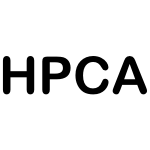 HPCA-2001-KailasEA #clustering #framework #named
HPCA-2001-KailasEA #clustering #framework #named- CARS: A New Code Generation Framework for Clustered ILP Processors (KK, KE, AKA), pp. 133–143.
 LCTES-OM-2001-KesslerB #approach #programming
LCTES-OM-2001-KesslerB #approach #programming- A Dynamic Programming Approach to Optimal Integrated Code Generation (CWK, AB), pp. 165–174.
 CAiSE-2000-BehrensR #behaviour #model transformation #named
CAiSE-2000-BehrensR #behaviour #model transformation #named- StateLator — Behavioral Code Generation as an Instance of a Model Transformation (TB, SR), pp. 401–416.
 PLDI-2000-ZalameaLAV #pipes and filters
PLDI-2000-ZalameaLAV #pipes and filters- Improved spill code generation for software pipelined loops (JZ, JL, EA, MV), pp. 134–144.
 SAIG-2000-VuducD #automation #case study #experience #kernel
SAIG-2000-VuducD #automation #case study #experience #kernel- Code Generators for Automatic Tuning of Numerical Kernels: Experiences with FFTW (RV, JD), pp. 190–211.
 ICSE-2000-Whalen
ICSE-2000-Whalen - High-integrity code generation for state-based formalisms (MWW), pp. 725–727.
 DAC-2000-HorstmannshoffM #data flow #graph #performance
DAC-2000-HorstmannshoffM #data flow #graph #performance- Efficient building block based RTL code generation from synchronous data flow graphs (JH, HM), pp. 552–555.
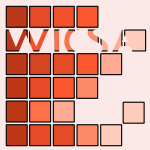 WICSA-1999-AndradeGXC #architecture #automation
WICSA-1999-AndradeGXC #architecture #automation- Architectural Concerns in Automating Code Generation (LFA, JG, PJX, JAC), pp. 495–510.
 IFL-1999-GrelckKS #multi #on the
IFL-1999-GrelckKS #multi #on the- On Code Generation for Multi-generator WITH-Loops in SAC (CG, DK, SBS), pp. 77–94.
 PEPM-1999-HornofJ #compilation #runtime
PEPM-1999-HornofJ #compilation #runtime- Certifying Compilation and Run-Time Code Generation (LH, TJ), pp. 60–74.
 PLDI-1999-FraserP
PLDI-1999-FraserP - Finite-Static Code Generation (CWF, TAP), pp. 270–280.
 ASE-1999-WhalenH #approach #automation #safety
ASE-1999-WhalenH #approach #automation #safety- An Approach to Automatic Code Generation for Safety-Critical Systems (MWW, MPEH), pp. 315–318.
 DATE-1999-Leupers #embedded
DATE-1999-Leupers #embedded- Exploiting Conditional Instructions in Code Generation for Embedded VLIW Processors (RL), p. 105–?.
 PLDI-1998-Adl-TabatabaiCLPS #compilation #effectiveness #java #performance
PLDI-1998-Adl-TabatabaiCLPS #compilation #effectiveness #java #performance- Fast, Effective Code Generation in a Just-In-Time Java Compiler (ARAT, MC, GYL, VMP, JMS), pp. 280–290.
 PLDI-1998-WicklineLP #runtime
PLDI-1998-WicklineLP #runtime- Run-time Code Generation and Modal-ML (PW, PL, FP), pp. 224–235.
 SIGAda-1998-PlintaDS #specification #validation
SIGAda-1998-PlintaDS #specification #validation- A Specification and Code Generation Tool for Message Translation and Validation (CP, RD, RVS), pp. 276–286.
 DAC-1998-HanonoD #resource management #scheduling
DAC-1998-HanonoD #resource management #scheduling- Instruction Selection, Resource Allocation, and Scheduling in the AVIV Retargetable Code Generator (SH, SD), pp. 510–515.
 ICFP-1997-Lassila #confluence #context-sensitive grammar #functional #metaprogramming #optimisation
ICFP-1997-Lassila #confluence #context-sensitive grammar #functional #metaprogramming #optimisation- A Functional Macro Expansion System for Optimizing Code Generation: Gaining Context-Sensitivity without Losing Confluence (EL), p. 315.
 EDOC-1997-LoftusOIV #corba #internet
EDOC-1997-LoftusOIV #corba #internet- A Code Generation Strategy for CORBA-Based Internet Applications (CWL, AO, EI, PV), pp. 160–169.
 PLDI-1997-PolettoEK #flexibility #named #performance
PLDI-1997-PolettoEK #flexibility #named #performance- tcc: A System for Fast, Flexible, and High-level Dynamic Code Generation (MP, DRE, MFK), pp. 109–121.
 PLILP-1997-Fujinami #automation #object-oriented #runtime
PLILP-1997-Fujinami #automation #object-oriented #runtime- Automatic Run-Time Code Generation in Object-Oriented Languages (NF), pp. 423–424.
 DAC-1997-Marwedel
DAC-1997-Marwedel - Code Generation for Core Processors (PM), pp. 232–237.
 PDP-1997-BouletD
PDP-1997-BouletD - Code generation in bouclettes (PB, MD), pp. 273–280.
 PLDI-1996-Engler #named #performance
PLDI-1996-Engler #named #performance- VCODE: a Retargetable, Extensible, Very Fast Dynamic Code Generation System (DRE), pp. 160–170.
 PLDI-1996-LeeL #ml #optimisation #runtime
PLDI-1996-LeeL #ml #optimisation #runtime- Optimizing ML with Run-Time Code Generation (PL, ML), pp. 137–148.
 POPL-1996-EnglerHK #independence #performance
POPL-1996-EnglerHK #independence #performance- ‘C: A Language for High-Level, Efficient, and Machine-Independent Dynamic Code Generation (DRE, WCH, MFK), pp. 131–144.
 Best-of-PLDI-1996-LeeL96a #ml #optimisation #runtime
Best-of-PLDI-1996-LeeL96a #ml #optimisation #runtime- Optimizing ML with run-time code generation (with retrospective) (PL, ML), pp. 540–553.
 CC-1996-NymeyerKWA
CC-1996-NymeyerKWA - Code Generation = A* + BURS (AN, JPK, YW, HA), pp. 160–176.
 DAC-1996-AraujoML #architecture #using
DAC-1996-AraujoML #architecture #using- Using Register-Transfer Paths in Code Generation for Heterogeneous Memory-Register Architectures (GA, SM, MTCL), pp. 591–596.
 DAC-1996-HosseiniMK #analysis #functional #verification
DAC-1996-HosseiniMK #analysis #functional #verification- Code Generation and Analysis for the Functional Verification of Microprocessors (AH, DM, PK), pp. 305–310.
 DAC-1996-MehendaleVS #linear #multi
DAC-1996-MehendaleVS #linear #multi- Optimized Code Generation of Multiplication-free Linear Transforms (MM, GV, SDS), pp. 41–46.
 AdaEurope-1995-Heitz #ada #automation #c++ #reliability #reuse #using
AdaEurope-1995-Heitz #ada #automation #c++ #reliability #reuse #using- Achieving Reusable and Reliable Client-Server Code using HOODTM Automated Code Generation for ADA95 and C++ Targets (MH), pp. 419–438.
 SAS-1995-Coorg #clustering #concurrent #functional #multi #strict #thread
SAS-1995-Coorg #clustering #concurrent #functional #multi #strict #thread- Partitioning Non-strict Functional Languages for Multi-threaded Code Generation (SRC), pp. 82–99.
 ICSE-1995-Floch #automation #evolution #flexibility #maintenance #using
ICSE-1995-Floch #automation #evolution #flexibility #maintenance #using- Supporting Evolution and Maintenance by Using a Flexible Automatic Code Generator (JF), pp. 211–219.
 DAC-1995-TimmerSMJ #modelling #scheduling
DAC-1995-TimmerSMJ #modelling #scheduling- Conflict Modelling and Instruction Scheduling in Code Generation for In-House DSP Cores (AHT, MTJS, JLvM, JAGJ), pp. 593–598.
 ILPS-1995-ConwayHS
ILPS-1995-ConwayHS - Code Generation for Mercury (TCC, FH, ZS), pp. 242–256.
 CAiSE-1994-Kurbel #analysis #automation #case study #experience #using
CAiSE-1994-Kurbel #analysis #automation #case study #experience #using- From Analysis to Code Generation: Experiences from an Information Engineering Project Using I-CASE Technology (KK), pp. 214–227.
 PEPM-1994-LeoneL #lightweight #runtime
PEPM-1994-LeoneL #lightweight #runtime- Lightweight Run-Time Code Generation (ML, PL), pp. 97–106.
 TRI-Ada-1994-GuemhiouiDPE #ada #design #object-oriented #profiling
TRI-Ada-1994-GuemhiouiDPE #ada #design #object-oriented #profiling- Profiling in an Object-Oriented Design Environment That Supports Ada 9X and Ada 83 Code Generation (KEG, SAD, TJP, HJCE), pp. 180–190.
 ASPLOS-1994-EnglerP #definite clause grammar #named #performance
ASPLOS-1994-EnglerP #definite clause grammar #named #performance- DCG: An Efficient, Retargetable Dynamic Code Generation System (DRE, TAP), pp. 263–272.
 CC-1994-FranzleM #programming language #realtime #towards
CC-1994-FranzleM #programming language #realtime #towards- Towards Provably Correct Code Generation for a Hard Real-Time Programming Language (MF, MMO), pp. 294–308.
 EDAC-1994-LiemMP
EDAC-1994-LiemMP - Instruction-Set Matching and Selection for DSP and ASIP Code Generation (CL, TCM, PGP), pp. 31–37.
 PEPM-1993-Lange #correctness
PEPM-1993-Lange #correctness- The Correctness of an Optimized Code Generation (TPL), pp. 167–178.
 PLDI-1993-AmarasingheL #communication #distributed #memory management #optimisation
PLDI-1993-AmarasingheL #communication #distributed #memory management #optimisation- Communication Optimization and Code Generation for Distributed Memory Machines (SPA, MSL), pp. 126–138.
 TRI-Ada-1993-GuemhiouiDP #ada #automation #design #education #object-oriented
TRI-Ada-1993-GuemhiouiDP #ada #automation #design #education #object-oriented- Object-Oriented Design and Automatic Ada Code Generation in the Education of Software Engineers (KEG, SAD, TJP), pp. 126–136.
 AdaEurope-1992-DuellSW #ada #scalability #source code #using
AdaEurope-1992-DuellSW #ada #scalability #source code #using- Using Ada Source Code Generators in a Large Project (RD, HJS, FCAdW), pp. 47–59.
 CC-1992-LangendoenH #functional #lazy evaluation #named
CC-1992-LangendoenH #functional #lazy evaluation #named- FCG: A Code Generator for Lazy Functional Languages (KL, PHH), pp. 278–296.
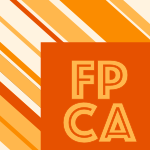 FPCA-1991-Traub #architecture #data flow #multi #source code #strict #thread
FPCA-1991-Traub #architecture #data flow #multi #source code #strict #thread- Multi-thread Code Generation for Dataflow Architectures from Non-Strict Programs (KRT), pp. 73–101.
 PLDI-1991-Morris #named #prototype
PLDI-1991-Morris #named #prototype- CCG: A Prototype Coagulating Code Generator (WGM), pp. 45–58.
 ASPLOS-1991-BenitezD #streaming
ASPLOS-1991-BenitezD #streaming- Code Generation for Streaming: An Access/Execute Mechanism (MEB, JWD), pp. 132–141.
 LFP-1990-NielsonN #information management #lazy evaluation
LFP-1990-NielsonN #information management #lazy evaluation- Context Information for Lazy Code Generation (HRN, FN), pp. 251–263.
 PLDI-1990-Giegerich #on the #specification
PLDI-1990-Giegerich #on the #specification- On the Structure of Verifiable Code Generator Specifications (RG), pp. 1–8.
 PLDI-1990-Wendt #performance #using
PLDI-1990-Wendt #performance #using- Fast Code Generation Using Automatically-Generated Decision Trees (ALW), pp. 9–15.
 PLDI-1989-Fraser
PLDI-1989-Fraser - A Language for Writing Code Generators (CWF), pp. 238–245.
 DAC-1989-NowakM #hardware #verification
DAC-1989-NowakM #hardware #verification- Verification of Hardware Descriptions by Retargetable Code Generation (LN, PM), pp. 441–447.
 VDME-1988-ButhB #correctness #proving #specification #term rewriting #using
VDME-1988-ButhB #correctness #proving #specification #term rewriting #using- Correctness Proofs for Meta IV Written Code Generator Specification using Term Rewriting (BB, KHB), pp. 406–433.
 PLDI-1988-FraserW #automation #generative #optimisation #performance
PLDI-1988-FraserW #automation #generative #optimisation #performance- Automatic Generation of Fast Optimizing Code Generators (CWF, ALW), pp. 79–84.
 PLILP-1988-DesplandMR #implementation #prolog
PLILP-1988-DesplandMR #implementation #prolog- An Implementation of Retargetable Code Generators in Prolog (AD, MM, RR), pp. 83–104.
 PLILP-1988-KluzniakM #towards
PLILP-1988-KluzniakM #towards- Towards a “Middle Road” Methodology for Writing Code Generators (FK, MM), pp. 105–118.
 POPL-1988-Pelegri-LlopartG
POPL-1988-Pelegri-LlopartG - Optimal Code Generation for Expression Trees: An Application of BURS Theory (EPL, SLG), pp. 294–308.
 CCHSC-1988-Kroha
CCHSC-1988-Kroha - Code Generation for a RISC Machine (PK), pp. 204–214.
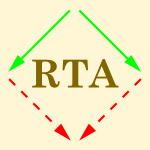 RTA-1987-DesplandMR #generative #term rewriting
RTA-1987-DesplandMR #generative #term rewriting- Code Generator Generation Based on Template-Driven Target Term Rewriting (AD, MM, RR), pp. 105–120.
 LFP-1986-FairbairnW #functional
LFP-1986-FairbairnW #functional- Code Generation Techniques for Functional Languages (JF, SW), pp. 94–104.
 POPL-1986-HatcherC #bottom-up #pattern matching
POPL-1986-HatcherC #bottom-up #pattern matching- High-Quality Code Generation Via Bottom-Up Tree Pattern Matching (PJH, TWC), pp. 119–130.
 ESOP-1986-Nielson #correctness #metalanguage
ESOP-1986-Nielson #correctness #metalanguage- Correctness of Code Generation from a Two-Level Meta-Language (FN), pp. 30–40.
 POPL-1985-AhoG #pattern matching #performance
POPL-1985-AhoG #pattern matching #performance- Efficient Tree Pattern Matching: An Aid to Code Generation (AVA, MG), pp. 334–340.
 POPL-1985-Appel #semantics
POPL-1985-Appel #semantics- Semantics-Directed Code Generation (AWA), pp. 315–324.
 POPL-1985-FordS #approach #incremental
POPL-1985-FordS #approach #incremental- A Greedy Approach to Incremental Code Generation (RF, DS), pp. 165–178.
 POPL-1984-SchwarzR #named
POPL-1984-SchwarzR #named- Treat — An Applicative Code Generator (JSS, DR), pp. 133–139.
 SCC-1984-AigrainGHMP #experience
SCC-1984-AigrainGHMP #experience- Experience with a Graham-Glanville style code generator (PA, SLG, RRH, MKM, EPL), pp. 13–24.
 SCC-1984-ChristopherHK #programming #using
SCC-1984-ChristopherHK #programming #using- Using dynamic programming to generate optimized code in a Graham-Glanville style code generator (TWC, PJH, RCK), pp. 25–36.
 SCC-1984-Karr
SCC-1984-Karr - Code generation by coagulation (MK), pp. 1–12.
 POPL-1983-Johnson
POPL-1983-Johnson - Code Generation for Silicon (SCJ), pp. 14–19.
 POPL-1982-GanapathiF #attribute grammar #using
POPL-1982-GanapathiF #attribute grammar #using- Description-Driven Code Generation using Attribute Grammars (MG, CNF), pp. 108–119.
 POPL-1982-HennessyG #constraints #pipes and filters
POPL-1982-HennessyG #constraints #pipes and filters- Code Generation and Reorganization in the Presence of Pipeline Constraints (JLH, TRG), pp. 120–127.
 SCC-1982-Bird #generative #implementation #specification
SCC-1982-Bird #generative #implementation #specification- An Implementation of a Code Generator Specification Language for Table Driven Code Generators (PLB), pp. 44–55.
 SCC-1982-Crawford
SCC-1982-Crawford - Engineering a Production Code Generator (JC), pp. 205–215.
 SCC-1982-GrahamHS #empirical
SCC-1982-GrahamHS #empirical- An Experiment in Table Driven Code Generation (SLG, RRH, RAS), pp. 32–43.
 SCC-1982-KrummeA
SCC-1982-KrummeA - A Practical Method for Code Generation Based on Exhaustive Search (DWK, DHA), pp. 185–196.
 SCC-1982-LandwehrJG #automation #experience
SCC-1982-LandwehrJG #automation #experience- Experience with an Automatic Code Generator Generator (RL, HSJ, GG), pp. 56–66.
 SCC-1982-MorganR
SCC-1982-MorganR - Analyzing Exotic Instructions for a Retargetable Code Generator (TMM, LAR), pp. 197–204.
 SCC-1982-Raskovsky #semantics #specification
SCC-1982-Raskovsky #semantics #specification- Denotational Semantics as a Specification of Code Generators (MRR), pp. 230–244.
 ASPLOS-1982-Middleburg #architecture
ASPLOS-1982-Middleburg #architecture- The Effect of the PDP-11 Architecture on Code Generation for Chill (CAM), pp. 149–157.
 SCC-1979-CattellNL #compilation #independence
SCC-1979-CattellNL #compilation #independence- Code generation in a machine-independent compiler (RGGC, JMN, BWL), pp. 65–75.
 SCC-1979-DoneganNF
SCC-1979-DoneganNF - A code generator generator language (MKD, REN, SF), pp. 58–64.
 SCC-1979-RudmikL #compilation #design #optimisation #performance
SCC-1979-RudmikL #compilation #design #optimisation #performance- Compiler design for efficient code generation and program optimization (AR, ESL), pp. 127–138.
 Best-of-PLDI-1979-CattellNL #compilation #independence
Best-of-PLDI-1979-CattellNL #compilation #independence- Code generation in a machine-independent compiler (with retrospective) (RGGC, JMN, BWL), pp. 1–13.
 POPL-1978-GlanvilleG #compilation
POPL-1978-GlanvilleG #compilation- A New Method for Compiler Code Generation (RSG, SLG), pp. 231–240.
 ICALP-1977-AhoS #compilation #how #question
ICALP-1977-AhoS #compilation #how #question- How Hard is Compiler Code Generation? (AVA, RS), pp. 1–15.
 POPL-1977-AhoJU #multi
POPL-1977-AhoJU #multi- Code Generation for Machines with Multiregister Operations (AVA, SCJ, JDU), pp. 21–28.
 POPL-1977-Harrison #compilation #optimisation
POPL-1977-Harrison #compilation #optimisation- A New Strategy for Code Generation — The General Purpose Optimizing Compiler (WHH), pp. 29–37.
 POPL-1976-AhoJU
POPL-1976-AhoJU - Code Generation for Expressions with Common Subexpressions (AVA, SCJ, JDU), pp. 19–31.
 STOC-1975-AhoJ
STOC-1975-AhoJ - Optimal Code Generation for Expression Trees (AVA, SCJ), pp. 207–217.
 SEFM-2019-WijsW #composition #concurrent #multi #thread #verification
SEFM-2019-WijsW #composition #concurrent #multi #thread #verification CGO-2019-GomesB #automation #formal method #modelling
CGO-2019-GomesB #automation #formal method #modelling CGO-2019-KimSTKPPRS
CGO-2019-KimSTKPPRS  ICSME-2018-Volanschi #editing #named
ICSME-2018-Volanschi #editing #named PADL-2018-Crary #source code #using
PADL-2018-Crary #source code #using CGO-2018-HagedornSSGD #performance
CGO-2018-HagedornSSGD #performance MoDELS-2017-EgeaD #automation #named #ocl #sql
MoDELS-2017-EgeaD #automation #named #ocl #sql PEPM-2017-SuwaT0I #higher-order #model checking #verification
PEPM-2017-SuwaT0I #higher-order #model checking #verification PPDP-2017-WinantCD #type safety
PPDP-2017-WinantCD #type safety SLE-2017-LuhunuS #comparison #performance #tool support
SLE-2017-LuhunuS #comparison #performance #tool support CGO-2017-SteuwerRD #functional #gpu #information retrieval #named
CGO-2017-SteuwerRD #functional #gpu #information retrieval #named MoDELS-2016-DasGJBHD #animation #development #embedded #modelling #monitoring #realtime #runtime
MoDELS-2016-DasGJBHD #animation #development #embedded #modelling #monitoring #realtime #runtime MoDELS-2016-HarrandFMH #framework #named
MoDELS-2016-HarrandFMH #framework #named FSE-2016-HasabnisS #execution #semantics #symbolic computation
FSE-2016-HasabnisS #execution #semantics #symbolic computation GPCE-2016-AdamKS #automation #case study #embedded #experience
GPCE-2016-AdamKS #automation #case study #embedded #experience GPCE-2016-BoussaaBBS #automation #non-functional #product line #testing
GPCE-2016-BoussaaBBS #automation #non-functional #product line #testing Haskell-2015-McDonellCGN #runtime #type safety
Haskell-2015-McDonellCGN #runtime #type safety GPCE-2015-RingertRW #behaviour
GPCE-2015-RingertRW #behaviour CASE-2015-GleesonBBCL #automation #optimisation
CASE-2015-GleesonBBCL #automation #optimisation CC-2015-BourkeCPPP #hybrid
CC-2015-BourkeCPPP #hybrid CC-2015-NgCY #protocol
CC-2015-NgCY #protocol CGO-2015-HasabnisQS #architecture #correctness #specification
CGO-2015-HasabnisQS #architecture #correctness #specification DATE-2015-FuWH
DATE-2015-FuWH  PDP-2015-EvrardL #automation #concurrent #distributed #formal method #modelling #process
PDP-2015-EvrardL #automation #concurrent #distributed #formal method #modelling #process PPoPP-2015-RavishankarDEPRRS #distributed #memory management
PPoPP-2015-RavishankarDEPRRS #distributed #memory management TAP-2015-MoreiraHDMNM #case study #testing #tool support #using #verification
TAP-2015-MoreiraHDMNM #case study #testing #tool support #using #verification ECSA-2014-CavalcanteOB #architecture #implementation
ECSA-2014-CavalcanteOB #architecture #implementation VLDB-2014-NagelBV #performance #query
VLDB-2014-NagelBV #performance #query IFM-2014-FurstHBDSM
IFM-2014-FurstHBDSM  SEFM-2014-Leroy #proving #tool support #verification
SEFM-2014-Leroy #proving #tool support #verification ILC-2014-Nunes-Harwitt14a #approach #evaluation #semantics
ILC-2014-Nunes-Harwitt14a #approach #evaluation #semantics AMT-2014-ZhangBBEHKW #concurrent #java #state machine #towards
AMT-2014-ZhangBBEHKW #concurrent #java #state machine #towards PEPM-2014-KameyamaKS #combinator
PEPM-2014-KameyamaKS #combinator SAC-2014-CaniGSST #automation #integration #towards
SAC-2014-CaniGSST #automation #integration #towards CC-2014-CharlesCLEG
CC-2014-CharlesCLEG  CC-2014-Dinechin #using
CC-2014-Dinechin #using CGO-2014-JuegaGTC #adaptation #automation #parametricity
CGO-2014-JuegaGTC #adaptation #automation #parametricity CGO-2014-VenkatSHS
CGO-2014-VenkatSHS  DAC-2014-RehmanKSSH #adaptation #dependence #named #process #reliability
DAC-2014-RehmanKSSH #adaptation #dependence #named #process #reliability DATE-2014-MembarthRHT #android #architecture #embedded
DATE-2014-MembarthRHT #android #architecture #embedded LCTES-2014-SpinkWFT #performance
LCTES-2014-SpinkWFT #performance CAiSE-2013-PapottiPSCP #analysis #modelling
CAiSE-2013-PapottiPSCP #analysis #modelling PLDI-2013-KongVSFPS
PLDI-2013-KongVSFPS  ICSE-2013-Guana #maintenance
ICSE-2013-Guana #maintenance SAC-2013-CiraciV #points-to
SAC-2013-CiraciV #points-to CGO-2013-KruijfS #analysis #evaluation #implementation
CGO-2013-KruijfS #analysis #evaluation #implementation FASE-2013-SakamotoTHWF #integration #named #testing #web
FASE-2013-SakamotoTHWF #integration #named #testing #web WICSA-ECSA-2012-EdwardsBM #analysis #automation #modelling
WICSA-ECSA-2012-EdwardsBM #analysis #automation #modelling CAiSE-2012-PastorE #modelling #requirements
CAiSE-2012-PastorE #modelling #requirements ICML-2012-McAfeeO #network #static analysis
ICML-2012-McAfeeO #network #static analysis ECMFA-2012-SmolikV
ECMFA-2012-SmolikV  PPoPP-2012-KimH #kernel #performance
PPoPP-2012-KimH #kernel #performance ECMFA-2011-GessenharterR #approach #development #diagrams #modelling #process #towards #uml
ECMFA-2011-GessenharterR #approach #development #diagrams #modelling #process #towards #uml MoDELS-2011-StenzelMR #qvt #verification
MoDELS-2011-StenzelMR #qvt #verification GPCE-2011-Shubert #development #flexibility #modelling
GPCE-2011-Shubert #development #flexibility #modelling ISSTA-2011-GligoricMK #named #performance
ISSTA-2011-GligoricMK #named #performance FLOPS-2010-HaftmannN #higher-order #term rewriting
FLOPS-2010-HaftmannN #higher-order #term rewriting SEKE-2010-BaratK #approach #configuration management #development #modelling
SEKE-2010-BaratK #approach #configuration management #development #modelling MoDELS-v1-2010-RahimW #consistency #semantics #state machine #verification
MoDELS-v1-2010-RahimW #consistency #semantics #state machine #verification PEPM-2010-RudolphT #bytecode #named #runtime #type safety
PEPM-2010-RudolphT #bytecode #named #runtime #type safety ASE-2010-MontrieuxJHYST #tool support
ASE-2010-MontrieuxJHYST #tool support ASE-2010-RajeevSSR #named #testing
ASE-2010-RajeevSSR #named #testing GPCE-2010-RompfO #approach #composition #domain-specific language #lightweight #runtime #staging
GPCE-2010-RompfO #approach #composition #domain-specific language #lightweight #runtime #staging CC-2010-BaskaranRS #automation #source code
CC-2010-BaskaranRS #automation #source code CGO-2010-KochBF
CGO-2010-KochBF  DATE-2010-CharfiMGTB #modelling #optimisation #towards
DATE-2010-CharfiMGTB #modelling #optimisation #towards DATE-2010-CollinsVC #manycore #parallel #recursion
DATE-2010-CollinsVC #manycore #parallel #recursion DATE-2010-ZhangDYMZKCPS #compilation #evaluation
DATE-2010-ZhangDYMZKCPS #compilation #evaluation WICSA-ECSA-2009-BontaB #algebra #architecture #java #named #process
WICSA-ECSA-2009-BontaB #algebra #architecture #java #named #process CIKM-2009-GedikAW #approach #data type #distributed #optimisation
CIKM-2009-GedikAW #approach #data type #distributed #optimisation SEKE-2009-HauboldBG #metamodelling #object-oriented #uml
SEKE-2009-HauboldBG #metamodelling #object-oriented #uml AdaEurope-2009-LasnierZPH #analysis #automation #modelling
AdaEurope-2009-LasnierZPH #analysis #automation #modelling POPL-2009-LublinermanST #composition #diagrams
POPL-2009-LublinermanST #composition #diagrams GTTSE-2009-JorgesSM #tutorial
GTTSE-2009-JorgesSM #tutorial DATE-2009-VidalLGSD #approach #co-evolution #design #embedded #modelling #uml
DATE-2009-VidalLGSD #approach #co-evolution #design #embedded #modelling #uml LCTES-2009-HeinzW #towards
LCTES-2009-HeinzW #towards SEFM-2008-SampathRRS #behaviour #testing
SEFM-2008-SampathRRS #behaviour #testing ICMT-2008-HemelKV #model transformation
ICMT-2008-HemelKV #model transformation MoDELS-2008-Gessenharter #java #semantics #uml
MoDELS-2008-Gessenharter #java #semantics #uml MoDELS-2008-ProutADS #configuration management #semantics
MoDELS-2008-ProutADS #configuration management #semantics SPLC-2008-WeissLSDS
SPLC-2008-WeissLSDS  MoDELS-2008-Gessenharter #java #semantics #uml
MoDELS-2008-Gessenharter #java #semantics #uml MoDELS-2008-ProutADS #configuration management #semantics
MoDELS-2008-ProutADS #configuration management #semantics ASE-2008-LiHG #interface #modelling #multi #named #process
ASE-2008-LiHG #interface #modelling #multi #named #process ASE-2008-TurnerPKC #approach #automation #process #using #web
ASE-2008-TurnerPKC #approach #automation #process #using #web GPCE-2008-KulkarniR #abstraction #component #generative #modelling #reuse
GPCE-2008-KulkarniR #abstraction #component #generative #modelling #reuse GPCE-2008-RosenmullerSSA #composition #product line
GPCE-2008-RosenmullerSSA #composition #product line DATE-2008-BrisolaraORLCW #uml #using
DATE-2008-BrisolaraORLCW #uml #using DATE-2008-LublinermanT #composition #diagrams #reuse #usability
DATE-2008-LublinermanT #composition #diagrams #reuse #usability LCTES-2008-BiernackiCHP #composition #data flow
LCTES-2008-BiernackiCHP #composition #data flow SIGMOD-2007-GrustMRST #compilation #sql #xquery
SIGMOD-2007-GrustMRST #compilation #sql #xquery Haskell-2007-GrabmullerK #haskell #named #runtime
Haskell-2007-GrabmullerK #haskell #named #runtime SEKE-2007-XuXW #automation #protocol #state machine #uml
SEKE-2007-XuXW #automation #protocol #state machine #uml AdaEurope-2007-AlonsoVSAL #ada #approach #automation #modelling #using
AdaEurope-2007-AlonsoVSAL #ada #approach #automation #modelling #using CGO-2007-WangCWSA #memory management #optimisation #transaction
CGO-2007-WangCWSA #memory management #optimisation #transaction COCV-2007-BlechP
COCV-2007-BlechP  SPLC-2006-Tolvanen #modelling #product line
SPLC-2006-Tolvanen #modelling #product line CC-2006-VasilacheBC
CC-2006-VasilacheBC  LCTES-2006-EdwardsT #modelling #performance
LCTES-2006-EdwardsT #modelling #performance SCAM-2005-Singer #concept #debugging
SCAM-2005-Singer #concept #debugging SEFM-2005-LeinenbachPP #compilation #implementation #towards #verification
SEFM-2005-LeinenbachPP #compilation #implementation #towards #verification MoDELS-2005-ChauvelJ #modelling #semantics #uml
MoDELS-2005-ChauvelJ #modelling #semantics #uml MoDELS-2005-ChauvelJ #modelling #semantics #uml
MoDELS-2005-ChauvelJ #modelling #semantics #uml PADL-2005-WangGL #continuation #logic #semantics #towards
PADL-2005-WangGL #continuation #logic #semantics #towards ASE-2005-GeW #architecture #configuration management #framework #modelling #named
ASE-2005-GeW #architecture #configuration management #framework #modelling #named ASE-2005-SwintPJYKWCSM #composition #flexibility #named
ASE-2005-SwintPJYKWCSM #composition #flexibility #named GPCE-2005-MossM #domain-specific language #performance
GPCE-2005-MossM #domain-specific language #performance CGO-2005-ChenK #optimisation
CGO-2005-ChenK #optimisation CGO-2005-WuEW #performance #runtime
CGO-2005-WuEW #performance #runtime COCV-J-2005-BlechGLM #comparison #correctness #higher-order #optimisation #proving
COCV-J-2005-BlechGLM #comparison #correctness #higher-order #optimisation #proving LCTES-2005-HenzingerKM #composition #distributed
LCTES-2005-HenzingerKM #composition #distributed SCAM-2004-NaumannULF #control flow
SCAM-2004-NaumannULF #control flow ICGT-2004-BaldanKS #generative #graph transformation #testing
ICGT-2004-BaldanKS #generative #graph transformation #testing EDOC-2004-ZhaoBBROA #automation #component #distributed #integration
EDOC-2004-ZhaoBBROA #automation #component #distributed #integration SAC-2004-Engelen #embedded #web #web service #xml
SAC-2004-Engelen #embedded #web #web service #xml SAC-2004-GoumasDAK #automation #parallel
SAC-2004-GoumasDAK #automation #parallel SAC-2004-MarkWC #automation #modelling #using
SAC-2004-MarkWC #automation #modelling #using CGO-2004-RongDGG #multi #pipes and filters
CGO-2004-RongDGG #multi #pipes and filters DATE-v2-2004-LorenzM #algorithm #search-based #using
DATE-v2-2004-LorenzM #algorithm #search-based #using ICEIS-v3-2003-AleksyG #distributed
ICEIS-v3-2003-AleksyG #distributed ASE-2003-SturmerC #design #testing #tool support
ASE-2003-SturmerC #design #testing #tool support SAC-2003-MarkWC #automation
SAC-2003-MarkWC #automation SAC-2003-ShinjoKP #empirical #performance
SAC-2003-ShinjoKP #empirical #performance GPCE-2003-RutherfordW #modelling
GPCE-2003-RutherfordW #modelling CGO-2003-KaminCJ #java #named #runtime
CGO-2003-KaminCJ #java #named #runtime DATE-2003-BesanaB #automation #case study #design #framework #hardware #platform
DATE-2003-BesanaB #automation #case study #design #framework #hardware #platform EDOC-2002-OldevikSEB #framework #model transformation
EDOC-2002-OldevikSEB #framework #model transformation ICEIS-2002-PelechanoACP #automation #concept #object-oriented
ICEIS-2002-PelechanoACP #automation #concept #object-oriented SAC-2002-GoumasAK #architecture #automation #parallel
SAC-2002-GoumasAK #architecture #automation #parallel DAC-2002-ChoiK #scheduling
DAC-2002-ChoiK #scheduling LCTES-SCOPES-2002-KesslerB #architecture #clustering
LCTES-SCOPES-2002-KesslerB #architecture #clustering TOOLS-USA-2001-Breuel #implementation #java #using
TOOLS-USA-2001-Breuel #implementation #java #using DAC-2001-UdayanarayananC
DAC-2001-UdayanarayananC  HPCA-2001-KailasEA #clustering #framework #named
HPCA-2001-KailasEA #clustering #framework #named LCTES-OM-2001-KesslerB #approach #programming
LCTES-OM-2001-KesslerB #approach #programming CAiSE-2000-BehrensR #behaviour #model transformation #named
CAiSE-2000-BehrensR #behaviour #model transformation #named PLDI-2000-ZalameaLAV #pipes and filters
PLDI-2000-ZalameaLAV #pipes and filters SAIG-2000-VuducD #automation #case study #experience #kernel
SAIG-2000-VuducD #automation #case study #experience #kernel ICSE-2000-Whalen
ICSE-2000-Whalen  DAC-2000-HorstmannshoffM #data flow #graph #performance
DAC-2000-HorstmannshoffM #data flow #graph #performance WICSA-1999-AndradeGXC #architecture #automation
WICSA-1999-AndradeGXC #architecture #automation IFL-1999-GrelckKS #multi #on the
IFL-1999-GrelckKS #multi #on the PEPM-1999-HornofJ #compilation #runtime
PEPM-1999-HornofJ #compilation #runtime PLDI-1999-FraserP
PLDI-1999-FraserP  ASE-1999-WhalenH #approach #automation #safety
ASE-1999-WhalenH #approach #automation #safety DATE-1999-Leupers #embedded
DATE-1999-Leupers #embedded PLDI-1998-Adl-TabatabaiCLPS #compilation #effectiveness #java #performance
PLDI-1998-Adl-TabatabaiCLPS #compilation #effectiveness #java #performance PLDI-1998-WicklineLP #runtime
PLDI-1998-WicklineLP #runtime SIGAda-1998-PlintaDS #specification #validation
SIGAda-1998-PlintaDS #specification #validation DAC-1998-HanonoD #resource management #scheduling
DAC-1998-HanonoD #resource management #scheduling ICFP-1997-Lassila #confluence #context-sensitive grammar #functional #metaprogramming #optimisation
ICFP-1997-Lassila #confluence #context-sensitive grammar #functional #metaprogramming #optimisation EDOC-1997-LoftusOIV #corba #internet
EDOC-1997-LoftusOIV #corba #internet PLDI-1997-PolettoEK #flexibility #named #performance
PLDI-1997-PolettoEK #flexibility #named #performance PLILP-1997-Fujinami #automation #object-oriented #runtime
PLILP-1997-Fujinami #automation #object-oriented #runtime DAC-1997-Marwedel
DAC-1997-Marwedel  PDP-1997-BouletD
PDP-1997-BouletD  PLDI-1996-Engler #named #performance
PLDI-1996-Engler #named #performance PLDI-1996-LeeL #ml #optimisation #runtime
PLDI-1996-LeeL #ml #optimisation #runtime POPL-1996-EnglerHK #independence #performance
POPL-1996-EnglerHK #independence #performance Best-of-PLDI-1996-LeeL96a #ml #optimisation #runtime
Best-of-PLDI-1996-LeeL96a #ml #optimisation #runtime CC-1996-NymeyerKWA
CC-1996-NymeyerKWA  DAC-1996-AraujoML #architecture #using
DAC-1996-AraujoML #architecture #using DAC-1996-HosseiniMK #analysis #functional #verification
DAC-1996-HosseiniMK #analysis #functional #verification DAC-1996-MehendaleVS #linear #multi
DAC-1996-MehendaleVS #linear #multi AdaEurope-1995-Heitz #ada #automation #c++ #reliability #reuse #using
AdaEurope-1995-Heitz #ada #automation #c++ #reliability #reuse #using SAS-1995-Coorg #clustering #concurrent #functional #multi #strict #thread
SAS-1995-Coorg #clustering #concurrent #functional #multi #strict #thread ICSE-1995-Floch #automation #evolution #flexibility #maintenance #using
ICSE-1995-Floch #automation #evolution #flexibility #maintenance #using DAC-1995-TimmerSMJ #modelling #scheduling
DAC-1995-TimmerSMJ #modelling #scheduling ILPS-1995-ConwayHS
ILPS-1995-ConwayHS  CAiSE-1994-Kurbel #analysis #automation #case study #experience #using
CAiSE-1994-Kurbel #analysis #automation #case study #experience #using PEPM-1994-LeoneL #lightweight #runtime
PEPM-1994-LeoneL #lightweight #runtime TRI-Ada-1994-GuemhiouiDPE #ada #design #object-oriented #profiling
TRI-Ada-1994-GuemhiouiDPE #ada #design #object-oriented #profiling ASPLOS-1994-EnglerP #definite clause grammar #named #performance
ASPLOS-1994-EnglerP #definite clause grammar #named #performance CC-1994-FranzleM #programming language #realtime #towards
CC-1994-FranzleM #programming language #realtime #towards EDAC-1994-LiemMP
EDAC-1994-LiemMP  PEPM-1993-Lange #correctness
PEPM-1993-Lange #correctness PLDI-1993-AmarasingheL #communication #distributed #memory management #optimisation
PLDI-1993-AmarasingheL #communication #distributed #memory management #optimisation TRI-Ada-1993-GuemhiouiDP #ada #automation #design #education #object-oriented
TRI-Ada-1993-GuemhiouiDP #ada #automation #design #education #object-oriented AdaEurope-1992-DuellSW #ada #scalability #source code #using
AdaEurope-1992-DuellSW #ada #scalability #source code #using CC-1992-LangendoenH #functional #lazy evaluation #named
CC-1992-LangendoenH #functional #lazy evaluation #named FPCA-1991-Traub #architecture #data flow #multi #source code #strict #thread
FPCA-1991-Traub #architecture #data flow #multi #source code #strict #thread PLDI-1991-Morris #named #prototype
PLDI-1991-Morris #named #prototype ASPLOS-1991-BenitezD #streaming
ASPLOS-1991-BenitezD #streaming LFP-1990-NielsonN #information management #lazy evaluation
LFP-1990-NielsonN #information management #lazy evaluation PLDI-1990-Giegerich #on the #specification
PLDI-1990-Giegerich #on the #specification PLDI-1990-Wendt #performance #using
PLDI-1990-Wendt #performance #using PLDI-1989-Fraser
PLDI-1989-Fraser  DAC-1989-NowakM #hardware #verification
DAC-1989-NowakM #hardware #verification VDME-1988-ButhB #correctness #proving #specification #term rewriting #using
VDME-1988-ButhB #correctness #proving #specification #term rewriting #using PLDI-1988-FraserW #automation #generative #optimisation #performance
PLDI-1988-FraserW #automation #generative #optimisation #performance PLILP-1988-DesplandMR #implementation #prolog
PLILP-1988-DesplandMR #implementation #prolog PLILP-1988-KluzniakM #towards
PLILP-1988-KluzniakM #towards POPL-1988-Pelegri-LlopartG
POPL-1988-Pelegri-LlopartG  CCHSC-1988-Kroha
CCHSC-1988-Kroha  RTA-1987-DesplandMR #generative #term rewriting
RTA-1987-DesplandMR #generative #term rewriting LFP-1986-FairbairnW #functional
LFP-1986-FairbairnW #functional POPL-1986-HatcherC #bottom-up #pattern matching
POPL-1986-HatcherC #bottom-up #pattern matching ESOP-1986-Nielson #correctness #metalanguage
ESOP-1986-Nielson #correctness #metalanguage POPL-1985-AhoG #pattern matching #performance
POPL-1985-AhoG #pattern matching #performance POPL-1985-Appel #semantics
POPL-1985-Appel #semantics POPL-1985-FordS #approach #incremental
POPL-1985-FordS #approach #incremental POPL-1984-SchwarzR #named
POPL-1984-SchwarzR #named SCC-1984-AigrainGHMP #experience
SCC-1984-AigrainGHMP #experience SCC-1984-ChristopherHK #programming #using
SCC-1984-ChristopherHK #programming #using SCC-1984-Karr
SCC-1984-Karr  POPL-1983-Johnson
POPL-1983-Johnson  POPL-1982-GanapathiF #attribute grammar #using
POPL-1982-GanapathiF #attribute grammar #using POPL-1982-HennessyG #constraints #pipes and filters
POPL-1982-HennessyG #constraints #pipes and filters SCC-1982-Bird #generative #implementation #specification
SCC-1982-Bird #generative #implementation #specification SCC-1982-Crawford
SCC-1982-Crawford  SCC-1982-GrahamHS #empirical
SCC-1982-GrahamHS #empirical SCC-1982-KrummeA
SCC-1982-KrummeA  SCC-1982-LandwehrJG #automation #experience
SCC-1982-LandwehrJG #automation #experience SCC-1982-MorganR
SCC-1982-MorganR  SCC-1982-Raskovsky #semantics #specification
SCC-1982-Raskovsky #semantics #specification ASPLOS-1982-Middleburg #architecture
ASPLOS-1982-Middleburg #architecture SCC-1979-CattellNL #compilation #independence
SCC-1979-CattellNL #compilation #independence SCC-1979-DoneganNF
SCC-1979-DoneganNF  SCC-1979-RudmikL #compilation #design #optimisation #performance
SCC-1979-RudmikL #compilation #design #optimisation #performance Best-of-PLDI-1979-CattellNL #compilation #independence
Best-of-PLDI-1979-CattellNL #compilation #independence POPL-1978-GlanvilleG #compilation
POPL-1978-GlanvilleG #compilation ICALP-1977-AhoS #compilation #how #question
ICALP-1977-AhoS #compilation #how #question POPL-1977-AhoJU #multi
POPL-1977-AhoJU #multi POPL-1977-Harrison #compilation #optimisation
POPL-1977-Harrison #compilation #optimisation POPL-1976-AhoJU
POPL-1976-AhoJU  STOC-1975-AhoJ
STOC-1975-AhoJ 











